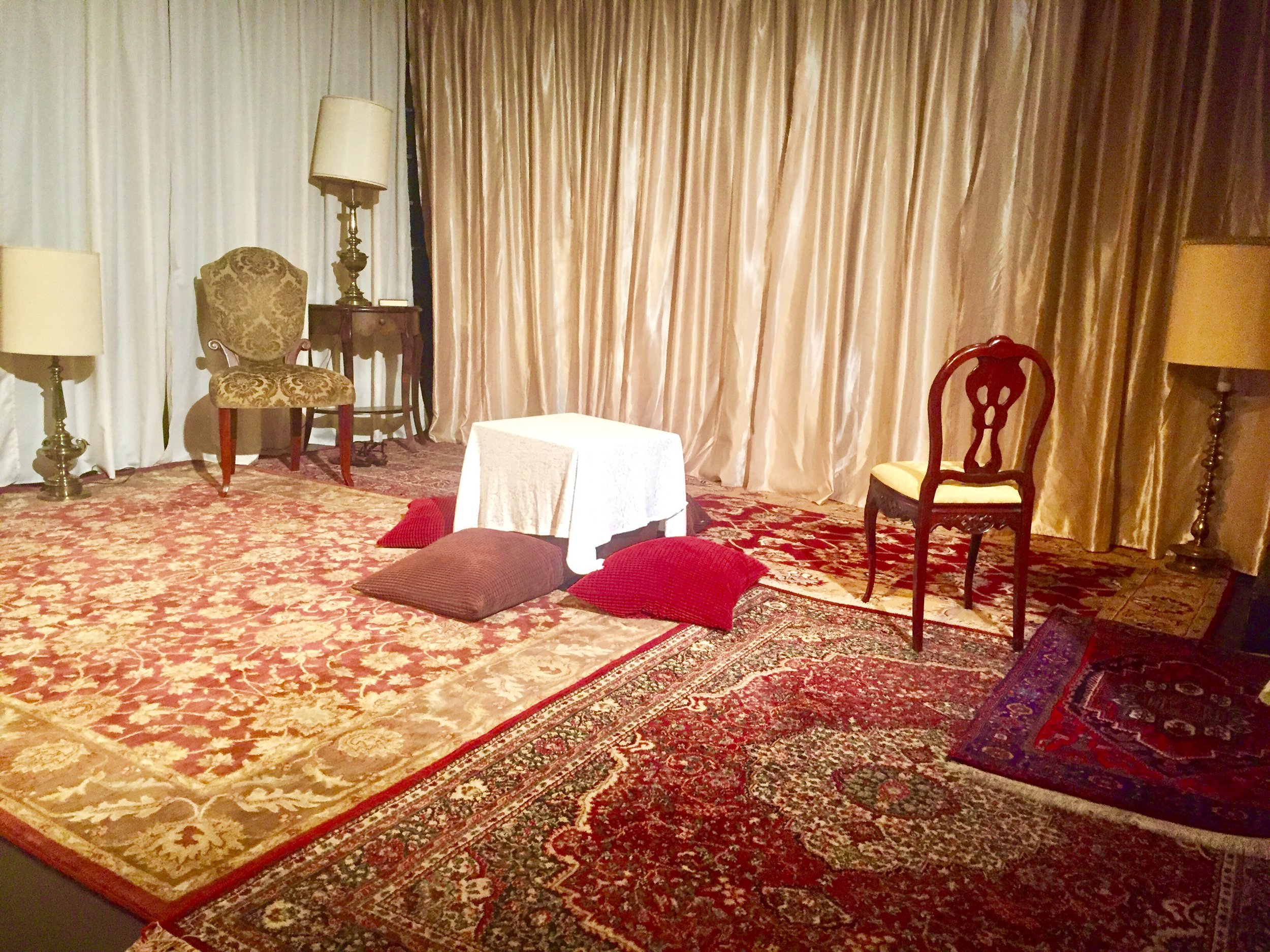This review of Trump Lear at Under St. Mark's Theater was written by Christopher M. Struck and published in Volume X, Issue 7 (2017) of the online edition of Applause! Applause!
Trump Lear
Written & Performed by David Carl
Co-Created & Directed by Michole Biancosino
Sound Design & Voiceovers by David Carl
Videos by Mark Stetson & David Carl
Tech by Michael Montalbano
Under St. Mark's Theater
94 St. Mark's Place
New York, New York 10009
Reviewed 9/30/17
I walked into Trump Lear with two lingering questions/doubts revolving around the idea of how Lear relates to Trump because Lear is a much different character. These questions were: "How respectful is the story to King Lear as a play?" and "How exactly does this play relate to Donald Trump?" David Carl, playing the role of Carl David, answers those questions pretty quickly. The first bit of the play discusses the literary and theatrically important significance of King Lear, even listing off a bevy of iconic actors who have mantled the role over the years including Ian McClellan, to which Trump responds, "Gandalf?"
In fact, David seemed to get two things mainly right with this play which made for an entertaining spectacle filled with laughter - Lear and Trump. Pitted against himself with a slim chance of saving his own life. David must perform his one-man King Lear for a tyrant Trump under bright interrogation lights. Trump, a disembodied voice "attached to a camera," says things like "Do you think I'm losing my mind, Carl?" and uses it as an opportunity to garner internet fame by live streaming the performance on YouTube revealing this to David only after he has broken down crying. Trump also breaks for commercials which simply portray him as the richest, smartest man alive. So far, so good.
The funny thing really was that David didn't have to stretch the truth to make a great play. He won his right to live from Trump by telling the truth. At the same time, the fictional Trump presses a lot of David's buttons and even makes reference to the fact that David should be thanking him; the stark reality being that David has made a decent living off of impersonating Trump. David responds, "Art was doing just fine before you came along."
David did a fantastic job putting it all on the line for art. While Trump Lear may not deserve the same level of virtuoso praise the original garnered, David has captured lightning in a bottle with this brilliant comedy. Ultimately, you don't need to hate Donald Trump to enjoy the show. Loving King Lear will not negatively impact your opinion. Loving Donald Trump might, but I'm not sure. I don't think much about and don't hate Donald Trump - and I love King Lear. I enjoyed this show. It's worth more than a few laughs for less than a few bucks. Better than expected. To see it, check out:www.trumplear.com
Photo from David Carl's website - see here: http://davidcarlonline.com

